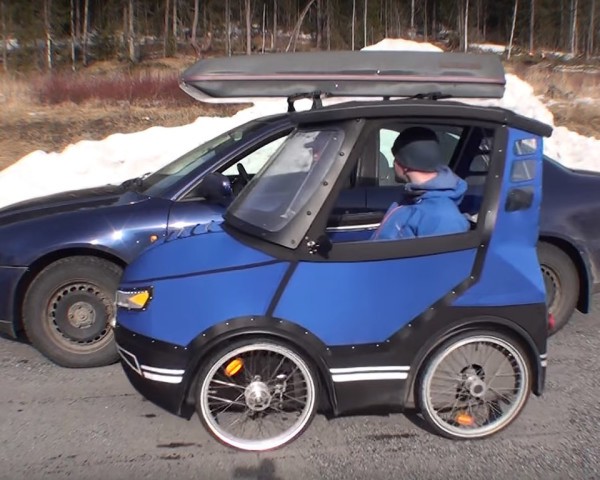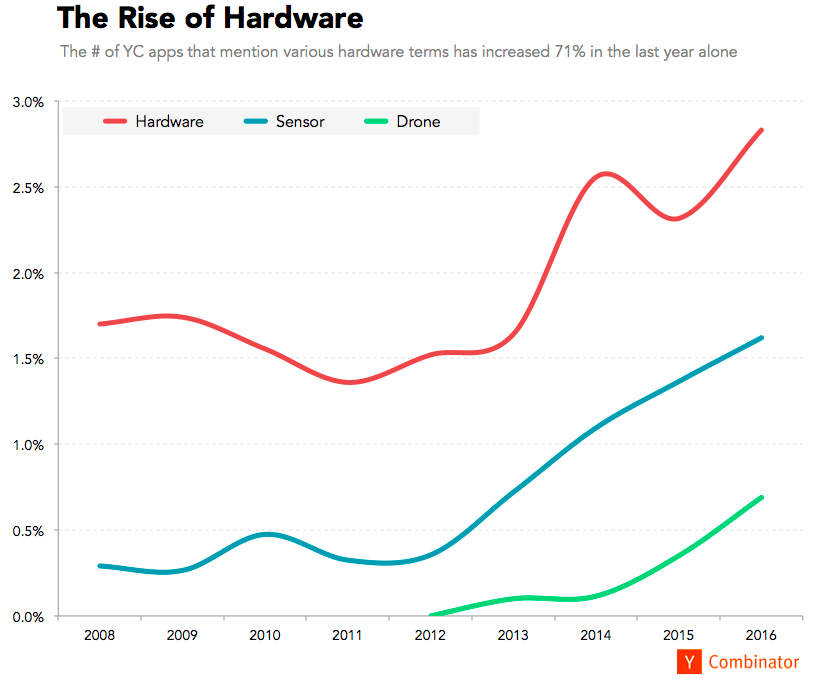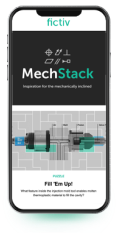Time to read: 3 min
Your source for hardware insights.
May 6th, 2016
Products
Your Skin as a Touchscreen
Researchers at Carnegie Mellon are testing a project called SkinTrack, which lets people use their skin as a touchscreen to play games on a smartwatch. It works the way cell towers triangulate signals to locate your phone: In this case, a ring on your index finger emits an electrical signal that can be read by an electrode-filled watch on your opposite wrist, allowing you to swipe and tap your skin to control the watch.
It’s a Car! It’s a Bike! It’s Kind of Both!
Inspired by fabric-covered bike trailers for kids and Swedish winters that rival those on Hoth, the PodRide is a souped-up bike that boasts a fabric cover, electric motor, turn signals, a cushy seat, windshield wipers, and even a trunk. It’s pretty much a bike-car hybrid, and we think it’ll be a game-changer for both dedicated cyclists who really hate riding in winter and reluctant drivers.
+ A bicycle that travels as fast as a car.

Puma Robot Capable of Winning Olympic Gold
Puma’s new robot, BeatBot, is designed to give athletes a worthy competitor. Currently available only to Puma-sponsored athletes like Usain Bolt, whom it rivals in terms of speed, the BeatBot can be programmed to match an athlete’s speed or provide a faster challenge. We’ve heard rumors of BeatBot being available for athletic programs later this year.
The First 3D Printed Consumer Wheelchair
London design studio Layer has created the first 3D-printed, made-to-measure wheelchair, which can be customized by inputting a user’s biometric information into 3D-printing software, which has never been done on a mass consumer scale. The seat is made from resin and shock-absorbent TPI plastic, and the foot bay will be made of titanium, giving the chair a cool modern look.
Industry
A New Hardware Startup Incubator
Shenzhen Valley Ventures and one of its limited partners, Zowee, have launched a new hardware startup incubator that offers prototyping and manufacturing equipment and testing labs for things like electromagnetic interference and compatibility. Startups who gain acceptance into the program will be mentored by four full-time Shenzhen Valley Ventures engineers and receive $50,000 to $300,000 in funding.
YCombinator Applications Reflect Tech Trends
Analyzing the most popular terms in YCombinator applications reflects which technologies are the most successful at the moment, according to Jared Friedman. In case you were wondering: Apps are still hot, AI is on the rise, and Slack is the company to watch.

FormLabs Acquires Pinshape
FormLabs, which offers a stereolithography approach to 3D printing that was once unique to high-end industrial printers, is acquiring Pinshape, an online 3D printing community. The combination of FormLabs’ printing methods and Pinshape’s fast-growing community should be formidable.
+ Microsoft has acquired Italian IoT platform Solair for integration into its Azure IoT Suite.
Kickstarter Project Goes Bust, Leaving Backers in the Lurch
Central Standard Timing, whose CST-01 product was going to be the world’s thinnest watch, raised $1 million on Kickstarter but has now gone bankrupt, leaving its Kickstarter backers with lighter wallets and little recourse. No word on how the money was spent or what the heck happened.










